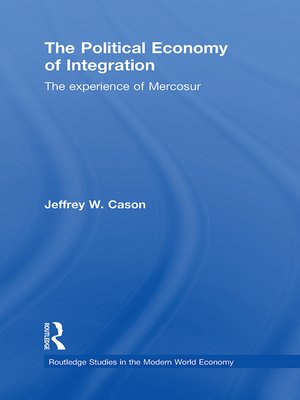The Political Economy of Integration
ebook ∣ The Experience of Mercosur · Routledge Studies in the Modern World Economy
By Jeffrey W. Cason

Sign up to save your library
With an OverDrive account, you can save your favorite libraries for at-a-glance information about availability. Find out more about OverDrive accounts.
Find this title in Libby, the library reading app by OverDrive.



Search for a digital library with this title
Title found at these libraries:
| Library Name | Distance |
|---|---|
| Loading... |
This book assesses South America's most ambitious attempt at economic integration, Mercosur. It explains the main—and inherent—weaknesses of the integration effort, through explicit comparison with the European experience with integration. Jeffrey Cason argues that the three main reasons for Mercosur's limited success are weak domestic political institutions in the member countries, vulnerability in the global political economy, and a serious imbalance in the economic and political weight of the member countries.
In addition to providing this overarching explanation for Mercosur's limitations, the book tells the story of Mercosur's genesis, development, and frustrations. This book provides both an explanatory framework for understanding Mercosur and a story. It considers how Mercosur emerged, why it was greeted with great enthusiasm (and huge trade growth), and how it hit stumbling blocks as it sought to be more than it was capable of being. The book also focuses on how and why developing countries are inherently limited in any economic integration project.







